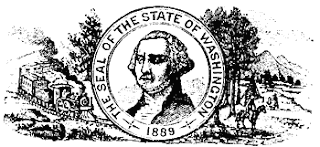The Washington Supreme Court was recently faced with a decision on whether to strictly construe the sample mechanics lien form contained in the Washington statutes, or whether to require an acknowledgment, which was required by statute but not contained in the sample form. Anna H. Oshiro and Michael S. Zicherman analyzed the court’s decision in the American Bar Association’s “The Construction Lawyer” Winter 2012 edition. The case is Williams v. Athletic Field, Inc., 172 Wash. 2d 683, 261 P.3d 109 (2011). The article is below:
Two contractors on separate construction projects filed lien claims using the sample form lien contained in Washington’s mechanic’s lien law. The owners of both projects sought dismissal of the liens as being invalid on the basis that the liens did not include and acknowledgment. Under Washington’s lien law, the lienor is required to have the mechanics liens acknowledged by a person who certifies in writing that the signor executed the lien freely and voluntarily and that he/she has the proper authority to execute the lien. The sample lien form in the statute, however, does not include language satisfying the statute’s acknowledgement requirement. Both liens were initially found to be defective and invalid for failure to comply with the statute, and were consolidated on appeal to the Washington Supreme Court.
The contractors admitted on appeal that their liens did not contain the acknowledgement required by the lien law but argued that their liens should nonetheless be found valid because they used the sample form in the statute. The owners argued that the court should follow the rationale for the court of appeals and find the liens invalid for the lack of an acknowledgment because the requirements of mechanic’s lien statutes are to be strictly construed because they are in derogation of the common law. The court rejected the court of appeals’ approach and agreed with the contractors that the liens were valid and should be reinstated.
Turning to the mechanic’s lien statute, the court noted that although the sample form does not contain language indicating that the lien was executed freely and voluntarily or any other language indicating a properly taken acknowledgment under the lien law, it does contain subscribed and sworn-to language whereby the lien claimant swears that the contents of the lien claim are true, correct, non-frivolous, and not clearly excessive, and that the lien is made with reasonable cause. The court also found that the sample form in the lien law is preceded by the express provision that “[a] claim of lien substantially in the following form shall be sufficient.” As such, the court found the statute ambiguous regarding the requirement for an acknowledgment when the lien claimant submits a lien substantially in the sample form, and that the sample form effectively creates an exception to the acknowledgment requirement when the form is used, particularly because the statute deems the form to be “sufficient”.
With regard to the owners’ strict construction argument, the court adhered to its long-established construction of mechanic’s lien statutes and ruled that strict construction is limited to determining whether persons or services come within the statute’s protections, and once it is determined that those persons or services are covered by the statute, the statute is to be liberally construed to give effect to its central purpose. It further held that to the extent that more recent precedent, such as Lumberman’s of Washington, Inc. v. Barnhardt, 89 Wash. App. 283, 949 P.2d 382 (Wash. Ct. App. 1997) suggests the statute’s mandate of liberal construction has been supplanted by a common law rule of strict construction, those decisions are disapproved.


